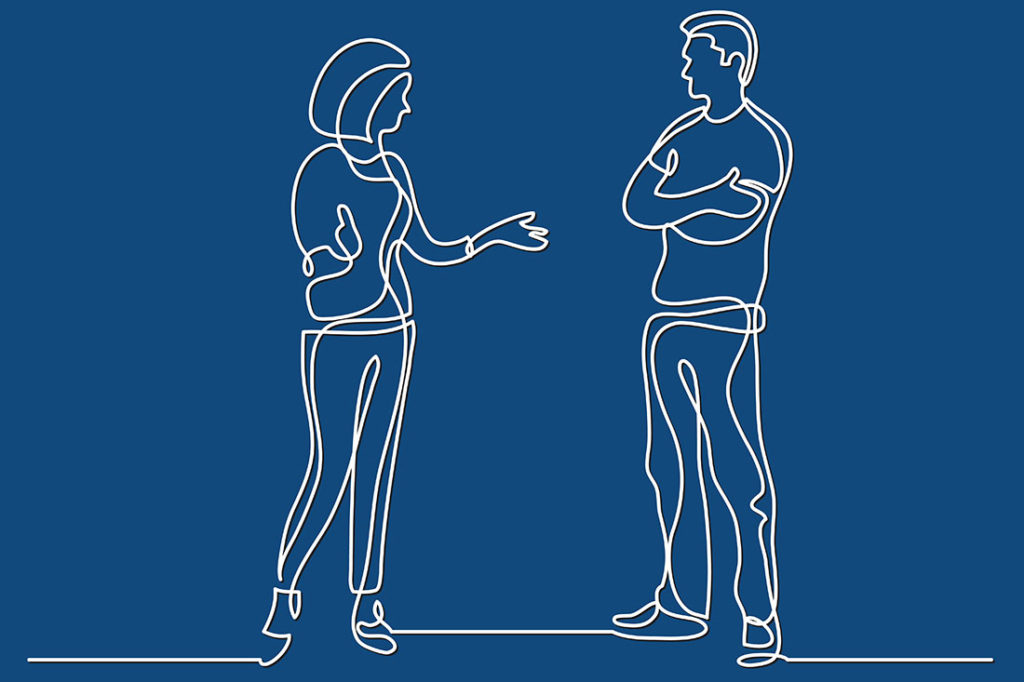
Learn to disagree without being disagreeable.
This was a key idea Coach Wooden utilized in his personal and professional life.
On a personal level, Coach felt disagreeing agreeably was an important part of his successful marriage. In his book A Lifetime of Observations and Reflections On and Off the Court with Steve Jamison, Coach described it this way:
Nellie Riley caught my eye the first time I ever saw her back at Martinsville High School in Indiana. It was on a warm star-filled night at the carnival during the summer of my freshman year. I think we probably fell in love right away and didn’t even know it.
Folks think Nellie and I had a perfect marriage, but it was because we worked at it. There are rough patches in any marriage.
Very early we understood that there would be times when we disagreed, but there would never be times when we had to be disagreeable.
We kept to that rule for over half a century. Nellie and I had a great love for one another, but we understood that even love takes some work.
Related: What Is Your Priority: Making a Living or Making a Life?
On a professional level, Coach disagreed agreeably when disciplining his players. He was strict but never made it personal; rather, he focused on the behavior. The players didn’t always agree; but Coach didn’t feel the conversation had to be disagreeable or antagonistic.
In his book My Personal Best with Steve Jamison, Coach described his disciplinary method:
I was comfortable being a disciplinarian, but did not want to be an ogre. Therefore, when discipline was required, I tried to dole it out in a manner that was firm but fair, with no emotionalism or anger attached.
Anger prevents proper thinking and makes you vulnerable.
It never got personal, because the purpose of criticism or discipline is not to punish, embarrass or ridicule, but to correct and improve. It is very difficult to antagonize and teach at the same time.
It isn’t what but how you speak that makes all the difference. Ben Franklin used to remark diplomatically, “On this point, I agree. But on the other, if you don’t mind, may I take exception?”
Are you able to disagree without being disagreeable? How can you practice this skill in your own life?







